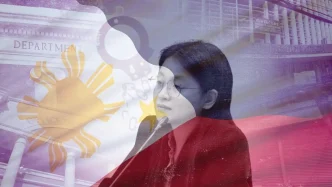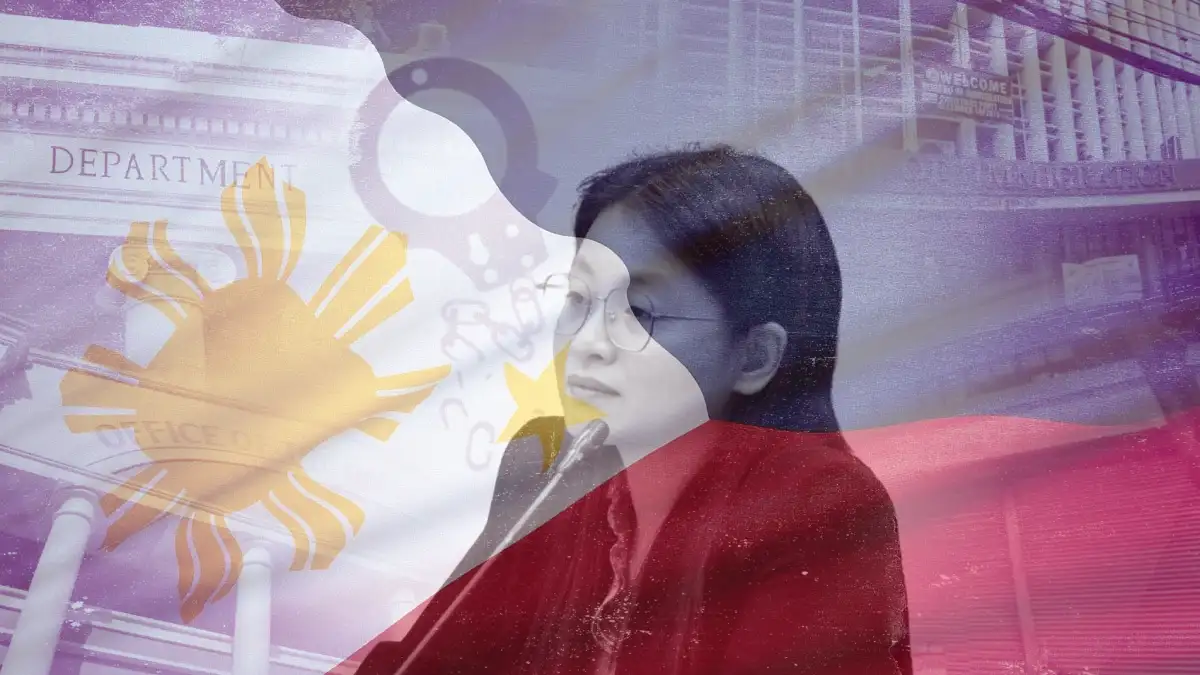In the kaleidoscopic landscape of Philippine politics, where tales of intrigue and absurdity often blur the line between reality and fiction, the story of Alice Leal Guo stands out as a gripping anomaly. The former mayor of Bamban, a small town in Tarlac province, has become the centerpiece of a saga that reads like a thriller novel, complete with allegations of dual identities, criminal enterprises, and whispers of espionage. What began as a routine investigation into a local gaming hub has spiraled into a national security concern, raising unsettling questions about foreign influence and the integrity of the country’s democratic institutions.
Unraveling the Mystery of Alice Guo
The saga of Alice Guo, a first-term mayor who clinched the Bamban mayorship in 2022, took a dramatic turn when Senator Risa Hontiveros initiated an inquiry into Zun Yuan Technology, Inc., a Philippine offshore gaming operation (Pogo) hub based in Bamban. The facility had been raided by authorities in May 2024 on suspicions of human trafficking, illegal detention, and even torture of foreign nationals. Initial findings revealed that Guo, a seemingly affluent 34-year-old, was not only an incorporator of Zun Yuan but also linked to the company that leased the land for the hub—strategically located behind Bamban’s municipal hall.
While local politicians dabbling in questionable enterprises are not uncommon in the Philippines, Hontiveros uncovered something far more troubling: Guo appeared to have no verifiable family records. Summoned to the Senate to clarify her background, Guo offered a narrative that strained credulity. She claimed to be the illegitimate daughter of a Filipino man, Angelito Guo, and his former housemaid, Amelia Leal. Yet, neither alleged parent had any birth, marriage, or death records registered with the Philippine Statistics Authority. Business documents further muddied the waters, indicating that Angelito Guo was, in fact, a Chinese citizen named Jian Zhong Guo.
Guo’s account of her childhood was equally perplexing. She repeatedly stated, “Lumaki po ako sa farm” (I grew up on a farm), describing an isolated upbringing on a pig farm in Tarlac with only a mysterious “Teacher Rubilyn” as her companion. She could recall neither playmates nor specific details of her early years, her responses sounding rehearsed, as if drawn from a script. These inconsistencies fueled suspicions that her backstory was a fabrication, designed to obscure a more troubling truth.
A Question of Identity: Filipino or Foreign National?
As the Senate probe deepened, more damning revelations emerged. Guo’s birth was not registered until she was 19 years old—a highly unusual delay in a country where birth registration is typically prompt. Further scrutiny by the National Bureau of Investigation and the Bureau of Immigration uncovered a startling connection: a young Chinese girl named Guo Hua Ping had entered the Philippines on January 12, 2003, at the age of 13. Fingerprint analysis, described by authorities as an “infallible science,” confirmed that Guo Hua Ping and Alice Leal Guo were the same person.
This evidence formed the bedrock of a recent ruling by the Manila Regional Trial Court Branch 34, which disqualified Guo from her position as mayor. In a comprehensive 67-page decision, the court declared Guo a usurper of the Office of the Mayor of Bamban, asserting that she had falsely presented herself as a Filipino citizen to run for public office. The ruling not only stripped her of her post but also invalidated her 2022 electoral victory, barring her from ever holding or running for public office in the Philippines. Guo Hua Ping is Alice Leal Guo, the court concluded unequivocally, based on documentary and biometric evidence.
Yet, the court’s decision went beyond a mere legal verdict on citizenship. It highlighted a far graver concern: the ease with which a foreign national had seemingly infiltrated Filipino society and politics. The ruling warned that such a situation “posed a risk to national security, which is far more than real” pointing to the potential for foreign actors to exploit vulnerabilities in the country’s systems for nefarious purposes.
Espionage Allegations and Broader Implications
The specter of espionage looms large over the Alice Guo case, fueled by the Philippines’ tense relations with China over disputed territories in the West Philippine Sea (known internationally as the South China Sea). From the outset of the investigation, questions arose about whether Guo could be a Chinese spy or part of a sleeper cell embedded in Philippine society to undermine the nation from within. These concerns were amplified by a statement from She Zhijiang, a convicted Chinese businessman and self-confessed spy, who claimed in an interview with Al Jazeera that Guo was indeed involved in espionage activities. While such claims remain unverified and must be treated with caution, they have intensified public and governmental scrutiny of Guo’s true intentions.
The timing of Guo’s exposure may have been fortuitous for the Philippines. Her alleged ties to criminal enterprises, including the Pogo hub implicated in human trafficking, were uncovered before she could ascend further in the country’s political hierarchy. The court’s swift action to disqualify her from civic life has been seen by some as a rare victory for accountability in a political system often criticized for its opacity. However, it also raises a chilling question: if someone like Guo could navigate the system with apparent ease, how many others with similar backgrounds might still be operating undetected?
Critics point to systemic weaknesses that may have facilitated Guo’s rise, particularly during the administration of former President Rodrigo Duterte, when immigration controls were reportedly lax. Allegations of fraudulent immigration practices during that period have led to speculation—though not yet substantiated by concrete evidence—that the country may have been infiltrated by foreign nationals posing as citizens. If true, this could represent a significant breach of national security, with implications far beyond the borders of Bamban.
The Pogo Connection: A Nexus of Crime and Influence
At the heart of the Guo controversy lies the shadowy world of Philippine offshore gaming operations, or Pogos, which have become a lightning rod for criticism in recent years. Initially introduced as a means to boost economic revenue through online gambling platforms targeting foreign markets, Pogos have increasingly been linked to criminal activities, including money laundering, human trafficking, and illegal detention. The raid on Zun Yuan Technology, Inc., where hundreds of foreign workers were allegedly held under coercive conditions, underscored the dark underbelly of these operations.
Guo’s direct involvement with Zun Yuan—as an incorporator and through her connection to the land lease—raises questions about the extent to which local politicians are complicit in or benefit from such enterprises. Bamban, a relatively small and unassuming town, became an unlikely hub for a sprawling operation, suggesting that corruption or negligence at the local level may have allowed criminal networks to flourish unchecked. The proximity of the Pogo hub to the municipal hall further fuels suspicions of official complicity, though no definitive evidence has yet confirmed whether Guo actively facilitated these activities or was merely a passive beneficiary.
The broader Pogo industry has also drawn attention for its potential links to Chinese organized crime, a concern that dovetails with fears of foreign influence in the Philippines. While the government has taken steps to crack down on illegal Pogos, including raids and deportations of foreign workers, the industry remains a contentious issue. For many Filipinos, the Guo case is a stark reminder of how economic incentives can sometimes come at the cost of national sovereignty and security.
Public Reaction and Political Fallout
The Alice Guo saga has captivated the Filipino public, dominating headlines and social media discussions. For a populace accustomed to political scandals, the case stands out for its sheer audacity and the existential questions it raises about identity and loyalty. Many express outrage at the idea of a foreign national occupying a position of public trust, while others lament the systemic failures that allowed such a deception to persist for years. The lack of transparency in Guo’s background, combined with her evasive responses during Senate hearings, has only deepened public skepticism.
Politically, the case has put pressure on lawmakers to address vulnerabilities in the country’s citizenship and electoral systems. Senator Hontiveros, who spearheaded the investigation, has called for stricter vetting processes for political candidates and enhanced oversight of immigration policies. Meanwhile, the disqualification of Guo has left Bamban without a mayor, necessitating interim leadership and potentially triggering a special election. The political vacuum could further destabilize the town, already reeling from the fallout of the Pogo raid and the national attention on its former leader.
Looking Ahead: A Test for Philippine Democracy
As the dust settles on the court’s ruling, the Alice Guo case remains a potent symbol of the challenges facing Philippine democracy. It underscores the fragility of systems meant to safeguard national identity and security, while highlighting the intersection of local politics with global geopolitical tensions. The allegations of espionage, though unproven, serve as a cautionary tale about the potential for foreign actors to exploit weak governance for strategic gain.
The Philippines now faces the daunting task of ensuring that no more “Alice Guos” slip through the cracks. This will require not only legal and institutional reforms but also a broader reckoning with the country’s approach to immigration, economic policies like Pogos, and the vetting of public officials. As investigations continue and new details emerge, the nation watches closely, aware that the stakes extend far beyond the borders of a small town in Tarlac. How Manila navigates this crisis could set a precedent for how it confronts similar threats in an increasingly complex and interconnected world.
For now, the story of Alice Guo—or Guo Hua Ping—remains an open-ended mystery, a reminder of the blurred lines between truth and deception in the pursuit of power. Whether she is an isolated anomaly or a harbinger of deeper systemic issues, her case has left an indelible mark on the Philippine political landscape, one that will resonate for years to come.
















